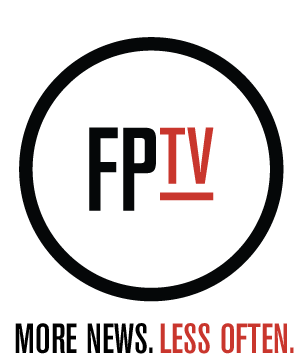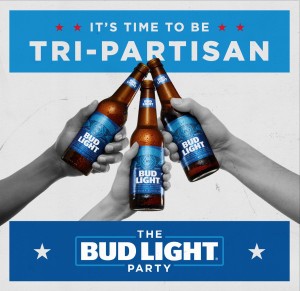NOBODY GETS FAMOUS UNTIL THEY LEAVE: AN INTERVIEW WITH MSTRKRFT

Electronic duo MSTRKRFT have become legends in the world of dance music. The group consists of Jesse Keeler, also in Death From Above 1979, alongside Producer Al-P. MSTRKRFT, a group that doesn't play very often, recently performed a set at Fun Fun Fun Fest in Austin with huge acclaim from the audience. Here is a brief chat with Keeler and Al-P.
MSTRKRFT, Photo: Provided by band
You can keep up with MSTRKRFT here.
The group doesn’t do too many shows; why did you start it back it up?
We’ve been working on our new record for the last three years with varying degrees of intensity. We like to play every once in awhile to stay visible, practice, and just to see what else is going on. We use those gigs to test drive new material. To be honest, we haven’t done that for this record as much as we used to, we used to gig all the time. When we used to put out songs, we’d put it on a CD and bring it to a club where someone was DJing. We didn’t know them or anything, but we were like, “Hey, we’re MSTRKRFT, can we play like two songs?” It was usually one new song and one other track. After we played we destroyed the CD’s so no one could find them and go back to the studio. We actually have our next record done, but we don’t know how we’re going to release it. We are excited about it, it’s a lot of new ideas. This record was in progress before Fist of God was even finished. We had a lot of lofty ideas, at least they seemed to be. They were things we thought we couldn’t do and then figured out how to do them.
In a general sense, Death From Above 1979 came before MSTRKRFT, why did you branch off to this project?
We started MSTRKRFT around 2024, one of the first things I remember about the group was being at SXSW. A DJ friend of mine came up to me and told me about some song he kept hearing at every party. While he was describing the song I told him, “Dude, that’s us.” He was so surprised, he didn’t know that we were doing that kind of music. I think about that conversation every time I come to Texas.
What got you interested in forming a dance group when Death From Above had a pretty different sound?
Al and I had both been making dance music on our own for a while leading up to MSTRKRFT and I DJ’ed before DFA started. I actually did local sets on Saturdays. Once Sebastien and I started touring more, I came back to do the set and saw another DJ playing. I ask the boss who that guy is and he says “I had to hire someone else, you keep going away!” That was the end of my DJ career for a while, but Al and I finally started working together. Our initial goal was just to produce records for other people, but we wanted to branch out into remixes, not many others were doing that. When Death From Above broke up we already completed so many remixes for people that a deal with a record label came to us. They asked if we wanted a deal. We looked at the money and said “Yeah! That sounds like a great deal!” When we were alone we were like “What the fuck are we going to do?! We don’t have any official songs!” We didn’t think of how we were going to perform. “Shit! We didn’t think about this. I guess we could just DJ?” That was ten years ago. We ended up getting pretty good with it, so it went on for a while. Now, with this record, we are going back to our roots. Basically, we’re trying not to use any computers.
Where did the idea for no computers come from?
In all creativity, you can get into a rut based on things being easy, you know? If something is really easy to do, you’ll probably continue to do that, if that’s your livelihood. That starts to complicate things, though. Maybe I would’ve stopped DJ’ing a long time ago, but people kept asking me to come back and play a show. “Shit, I had child support and other stuff I had to pay. Yeah, I’ll come back and play!” That stuff can start to make you lazy, or maybe just comfortable. Stick around for our DJ set, you’ll find computers, a fully computerized set! [laughs]. People used to come up to us and tell us we should play live like so-and-so, it was so frustrating for us, they’re not playing live! They’re just pressing a button. We’re band guys, so we were like “No, that’s not live! You have to be able to mess up.” If you’re not able to fuck up, it’s not live. It took us a while to figure out how we wanted to sound and how we could make that live. Once DFA started again it gave us a chunk of time where no one asked what [MSTRKRFT] was going to do. Fans came up to us and asked what was next. Uh, you wait and see!
Life After Death 1979 was a successful documentary that reflected on the early days of DFA. Could you see a MSTRKRFT documentary debuting?
No, I don’t think so. It would be hard to make now. I think that time has come and gone. If there was a way to have had implanted cameras in our eyes, that would’ve been the best way to do it. No way! I’d be in prison in that case [laughs]! If we were to recreate those moments it wouldn’t be authentic. We would have videos of a month long tour where we wouldn’t play for less than ten thousand people. At one point, we were just headlining dance stages around the world. I remember a time where we were in Korea for three to four hours. We arrived, headlined, went back to the hotel to change clothes and then went to Singapore to do the exact same thing. The whole experience was like a constant, perpetual world tour. It’s very easy to become complacent in that scenario in terms of being creative, you know? People were asking us to keep doing the same thing, “Hey come take more money than you make in a year and come do this.” We’d be crazy not to say yes to those things, but at a certain point we had to decide to say no, as crazy as it seems. After a while you end up building this resolve around it and go “Fuck that, I don’t want that.” I mean, we said no to this show at first [haha]! They asked us three times before we said yes. We kept saying “Nah, we’re doing other things.”
Why did you change your mind and play Fun Fun Fun?
They first asked us in the Spring, we were booked on this festival since March. They just really wanted us to come and play. We sort of planned out all the stuff we had to do before we felt comfortable coming back. I think the fact that we love Austin helped a lot. Everything just seemed to work in the end. It’s November in Canada, I’d rather come to Austin for three days. If it wasn’t too hot here in the summer, we’d live here. Hey, we’ve caused riots in Austin twice. We’ve gotten the horses twice! The first one was with us, we caused a riot in the back of some place on Sixth Street. The cops tried to arrest us! Luckily our attorney was with us. She came to the show and she was wasted, she couldn’t believe she got us out of that. Thanks, Susan!
It seems like there is a takeover of American radio by Canadian artists, there are even some groups from Canada playing the festival. Do you think that was to be expected?
I find that every region has their bursts of creativity. Australia had it, England has had it. I think that [Canada] is producing a lot of talent right now, but It’s not like it wasn’t there. I think America is just so self-loathing, I mean Americans don’t feel comfortable cheering for themselves. It’s gone so out of vogue, right? It’s like “Oh, we can’t be super excited about this American thing anymore, it’s so uncool.” Meanwhile, that’s what everyone in other countries is doing. “Drake! Drake is so great. I love him.” Even though he lives in Atlanta and became famous with Lil Wayne and all his money is somewhere else, but that’s cool! That’s great! In Canada, nobody gets famous until they leave. The third time we ever DJ’ed was headlining a club in London. When we came back to Canada everyone was like “Woah…you’re MSTRKRFT!” We always responded with ‘Yeah, we’ve been here.” We did have a bit of a gift when we started because our first visibility was on Myspace, God, I loved Myspace. People thought that we were either from Paris or New York. We were just putting out music and photos of the group. I think that helped us somehow, especially in Canada. It’s not until you’re famous elsewhere that they’ll accept you.
Thank you for the interview, I look forward to see you perform in Houston one day.
Thanks for having us. We hope to be there soon.















